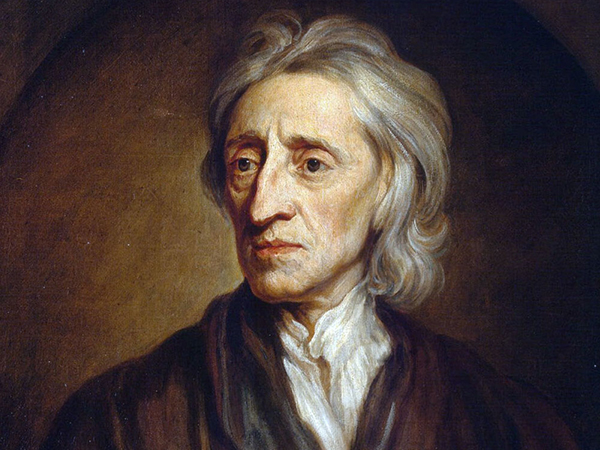
2024 events
| The Cavendish Circle. Philosophical Networks in the 17th Century 30 April 2024 Papers presented in the workshop investigate ways in which philosophical and scientific ideas were discussed and circulated through the mediation and within the context of the so-called “Cavendish Circle” during the 1640s. By gathering five expert contributors, this event aims to shed light on a vibrant intellectual context, which was seminal for the advancement of the ideas of pivotal thinkers in the history of European philosophy, such as Thomas Hobbes, René Descartes, Margaret Cavendish, Pierre Gassendi, Kenelm Digby, and Walter Charleton. Papers discussed in the workshop will be submitted for a special issue in Hobbes Studies (forthcoming in 2025). The event takes place 30 years after the publication of one of the most important studies of the Cavendish Circle to date, namely the special issue The Cavendish Circle in The Seventeenth Century 9:2 (1994, ed. Timothy Raylor). | 1.59 M | |
| PhD Workshop in the History of Philosophy 22 March 2024 Spin-off of the PhD conference organized by the doctoral students of the PhD in Philosophy and Educational Sciences "Venice Issues - On Matter" (21-23 February 2024). | 2.30 M | |
| Fertile Uncertainties II: Experimentation between Ambiguity and Objectivity in the Early Modern Time 12 March 2024 Despite the major role played by experimentation in the many fields of knowledge during the early modern period, questions and problems frequently surfaced. Objectivity, certainty, sistematicity, reproducibility, failures and errors were some of the issues that characterized the experiential approach to nature and the methodological debate, this being an essential facet of human inquiry. While experiments (and experimentalism) gained momentum in the engagement with nature, criticism and limitations persisted. Heatedly debated themes, for example, were the opposition between artificiality and naturality, somehow concerning not only technical features, but also revealing philosophical and theoretical issues; the uniformity of natural laws across time and space, a crucial theme for those who aimed to achieve a unified understanding of the natural world; the overlapping between ignorance and experimentalism; or, finally, the interpretive and methodological strain caused by the extension of the experimental method from a discipline to another. During the second and last day of this workshop series (which will take place at the University of Milan and is organized in collaboration with the Department of Philosophy and Cultural Heritage of Ca' Foscari University), we aim to discuss such critical issues in diverse fields, while investigating: - The role of observation and visualization in anatomical dissections; - The reproducibility of chymical experiments; - The utility of microscopes and telescopes in the study of nature; - The restrictions of microscopic observations in plant anatomy; - The challenges of experimentation in shaping the new physics; - The epistemological study of errors, uncertainty and ignorance; - The opposition to contrived experiments. | 667 K | |
| Philosophical Reviews in German Territories (1668-1799) - workshop 7-8 March 2024 First workshop of the PRIN project "Philosophical Reviews in German Territories (1668-1799)". | 1.41 M | |
| The CREMT Bookshelf 2024 [ITA] 15 February - 10 June 2024 "The CREMT Bookshelf" is an annual series of book launches devoted to presenting and discussing recent books on Renaissance and early modern philosophy. Each event focuses on one book, which can be either a monograph or a collection of papers. Every session features at least two talks by specialists in the topic, followed by the replies of the book authors and/or editors, and finally by a debate with the audience. All events are open to everyone. They target especially scholars and enthusiasts of Renaissance and early modern thought. The new 2024 edition is the fourth edition of the CREMT Bookshelf. | 1.13 M |
Previous events
2023
| Fertile Uncertainties: Experimentation between Ambiguity and Objectivity in the Early Modern Time 22 November 2023 Despite the major role played by experimentation in the many fields of knowledge during the early modern period, questions and problems frequently surfaced. Objectivity, certainty, sistematicity, reproducibility, failures and errors were some of the issues that characterized the experiential approach to nature and the methodological debate, this being an essential facet of human inquiry. While experiments (and experimentalism) gained momentum in the engagement with nature, criticism and limitations persisted. Heatedly debated themes, for example, were the opposition between artificiality and naturality, somehow concerning not only technical features, but also revealing philosophical and theoretical issues; the uniformity of natural laws across time and space, a crucial theme for those who aimed to achieve a unified understanding of the natural world; the overlapping between ignorance and experimentalism; or, finally, the interpretive and methodological strain caused by the extension of the experimental method from a discipline to another.
In this workshop, we aim to discuss such critical issues in diverse fields, while investigating: | 787 K | |
| Galileo Galilei before the Sidereus Nuncius (1610) 16-17 November 2023 From numerous perspectives, the Sidereus Nuncius represents a pivotal work—a symbolic turning point signaling the dawn of a new epoch while concurrently marking the conclusion of an ancient worldview. In 1610 the publication of this work (“one’s man battle cry against ignorance” according to the suggestive definition by John W. Hessler) did also mark a turning point in its author’s life. Up until then, Galileo Galilei (1564-1642) had scant publications to his name, due in large part to his academic obligations as a mathematics professor at the Universities of Pisa (from 1589 to 1592) and Padua (from 1592 to 1610). But thanks also to the political slant he gave to some of the telescopic discoveries described in the Sidereus Nuncius, in 1610 he managed to transition to the Medici court, free from teaching duties and finally revered as the Grand Duke of Tuscany’s official mathematician and philosopher. Recognizing the crucial role this period plays in interpreting the subsequent developments of Galileo’s natural philosophy, the conference seeks to reflect anew on specific aspects of Galileo’s life and work before the Sidereus Nuncius. The goal is twofold: first, to deliver a comprehensive assessment of the studies on Galileo’s Pisan and Paduan period (also in relation to the ‘official’ Artistotelianism of the universities and the higher intellectual freedom permitted by local academies), thus setting a benchmark for future investigations; second, to present fresh research that illuminates this seminal period for Galileo’s scientific and philosophical thought. This kind of exploration may enhance our understanding of Galileo’s later work, and by extension, our perception of this important figure in the history of early modern science. | 1.58 M | |
| Plants in Early Modern Knowledge (and Beyond): History, Philosophy, and Medicine 6 October - 12 December 2023 Seminar series with international guests aimed to discuss the study of plants in the history of knowledge. | 553 K | |
| John Locke: Natural Philosophy and the Circulation of Knowledge 19 September 2023 | 1.07 M | |
| Works in Progress in the History of Science: Challenges and Methodologies 22-23 June 2023 While observing the painting "Angelus Novus" by Paul Kleee (1920), the philosopher Walter Benjamin recognized the peculiar condition of the "angel of history", whose destiny was to be pushed towards the future while having the eyes open towards the past. Arguably, this is also the condition of those who made the past as the object of studies for the contemporaneity. Historians of science are no exception to this paradox of progressive, backward advancement. As science advances so it does the ongoing understanding of its history. "Works in Progress in the History of Science: Challenges and Methodologies" is a workshop designed to learn how to walk with the Angelus Novus on the footsteps of past science. Gathering a team of speakers from Ca’ Foscari, Oklahoma University and other istitutions leaders in the field, we will explore how and why making history of science today, with reference to relevant case-studies and preliminary results of researches in progress. | 1.22 M | |
| Plants and Philosophy: From Ancient Wisdom to Today’s Science 30-31 May 2023 The workshop aims to explore the philosophical attempts to engage with vegetal bodies from ancient wisdom to contemporary philosophy and science. Speakers will convene in Venice to discuss the various areas of plant studies as these intersect with philosophical knowledge. | 1.17 M | |
| The CREMT Bookshelf 2023 [ITA] 21 March - 14 June 2023 "The CREMT Bookshelf" is a series of presentations of recent books that have at their center problems or thinkers of the Early Modern period. In each event, the authors or the editors of the books will be present and their work will be discussed by specialists of the topic. | 436 K |
2022
| Arts and Sciences, Historicizing Boundaries 7th International Workshop on Historical Epistemology 9-10 June 2022 | 800 K | |
| How many points are in a line segment? From Grosseteste to numerosities 1 June 2022 In his commentary on Aristotle’s Physics, Robert Grosseteste (ca. 1175-1253), Oxford theologian and Chancellor of the University, wrote: “Moreover, [God] created everything by number, weight, and measure, and He is the first and most accurate Measurer. By infinite numbers which are finite to Him, he measured the lines which He created. By some infinite number which is fixed and finite to Him, He measured and numbered the one-cubit line; and by an infinite number twice that size, He measured the two-cubit line; and by an infinite number half that size, He measured the half-cubit line.” In Grosseteste’s account the numerosity of the points in a finite line segment covaries with the length of the line segment. This position gave rise to an interesting number of debates in the XIIIth century especially as a consequence of a challenge raised by the Oxford theologian Richard Fishacre (1205-1248) who set up a one to one correspondence between the points in line segments of different lengths. I will reconstruct some aspects of this medieval debate, connect it to later intuitions (Bolzano and Cantor), and then discuss recent results from the theory of numerosities to the effect that the counting of points in a line segment preserving the part-whole principle is compatible with Lebesgue measure. I conclude that Grosseteste’s intuitions can find a suitable mathematical implementation. | 0.94 M | |
| Girolamo Cardano (1501-1576). New Perspectives on a Master of Intellectual Variety 24-25 May 2022 | 420 K | |
| Styles and Method in the Early Modern and the Modern Period 4 April - 23 May 2022 This seminar explores the hypothesis that a distinctive link between style and ways of thinking was formed between the early modern and the modern periods – one that not only played a specific role in the emergence of philology as a model for knowledge but also in discussions of scientific method. | 1.26 M | |
| Cartesianism and Beyond. Lectures on the History of Cartesianism and its Reception 7 March-20 June 2022 This series of lectures, held by foremost experts on Cartesianism and its dissemination, explores the ways in which Descartes’s ideas developed and came at the crossroads with different philosophical and scientific paradigms in the seventeenth and eighteenth centuries. Attention is paid in particular to the idea of pineal gland, the relations of soul and body, the practices of philosophical meditation, the idea of substance, and the theory of scientific knowledge. | 244 K | |
| The CREMT Bookshelf [ITA] 31 January - 17 May 2022 “The CREMT Bookshelf” is a series of presentations of recent books that have at their center problems or thinkers of the Early Modern period. In each event, the authors or the editors of the books will be present and their work will be discussed by specialists of the topic. All events are open to the public. The events will be held in English and/or Italian and will take place via Zoom. | 452 K |
2021
"Plants in Early Modern Knowledge: History, Philosophy, and Medicine"
January 2021 - February 2022
The seminar aims to explore the studies of plants in the Renaissance and early modern period. While the reception of the classics renovated the attraction to the plants and the need to classify green nature, the arrival of specimens from the New World(s) brought questions about exotic nature, revealing the demand of a new approach to vegetation. Indeed, plants were at the centre of philosophical, medical, and naturalistic investigations. In the seminar, speakers will discuss a few case studies, shedding light on the different attempts to deal with plants in the sixteenth and seventeenth centuries.
The event is realized with the support of the European Union’s Horizon 2020 research and innovation programme under the Marie Skłodowska-Curie grant agreement No. 890770, "VegSciLif"
| Programme for winter 2021-2022 2 December 2021 - 21 February 2022 | 469 K | |
| Oana Matei's presentation 22 April 2021 | 479 K | |
| Antonio Clericuzio's presentation 22 March 2021 | 13.59 M | |
| Programme for Spring 2021 22 March - 9 June 2021 | 564 K |
CREMT bookshelf 2021
| CREMT bookshelf programme 2021 21 January - 20 May 2021 | 831 K |
"Prismi della Modernità. Itinerari di Storia della Filosofia dal XIV al XVIII secolo"
November 2020-June 2021
The seminar "Prismi della Modernità. Itinerari di Storia della Filosofia dal XIV al XVIII secolo" was born at the end of 2017 thanks to Emanuela Scribano and has been organized every year by Francesco Binotto, Maria Vittoria Comacchi, and Luigi Emilio Pischedda. "Prismi della Modernità" aims to foster research, discussions, and readings in the field of late Medieval, Renaissance and early modern philosophy and to contribute to a comprehensive understanding of the multifaceted nature of philosophy from the late medieval to the early modern period. "Prismi della Modernità" benefits from the expertise of both established and early-career guests, and of Ca’ Foscari University members and unite scholars from different research backgrounds and disciplines through an interdisciplinary and multidisciplinary approach. The central purpose of "Prismi della modernità" is to encourage the exchange of knowledge, ideas, and experiences between professors, researchers, students, and interested audiences. The seminar, structured in research and methodological meetings, also hosts book presentations, conferences, and workshops.
| Prismi 2020-2021 [ITA] 5 November 2020 - 3 June 2021 | 1.05 M |
2018-2020
"Prismi della modernità"
| Prismi 2019-2020 [ITA] 26 November 2019 - 3 June 2020 | 1.83 M | |
| Conference "Dissenso ed eterodossia nel pensiero ebraico" [ITA] 28-29 March 2019 | 1.63 M | |
| Prismi 2018-2019 [ITA] 25 October 2018 - 22 May 2019 | 762 K | |
| Conference "Galen and the Early Moderns" 25-26 October 2018 | 1.04 M | |
| Prismi 2017-2018 [ITA] 21 February - 5 June 2018 | 3.01 M |
About
Mission
The Center for Renaissance and Early Modern Thought aims to foster research and academic cooperation intended to investigate the shaping of Renaissance and early modern thought in all its facets.
The Center promotes research able to uncover the multifaceted nature of Renaissance and early modern philosophical debates, their interconnections with other areas of the history of philosophy, ideas, political thought and science, and how their legacy might still affect today’s philosophical debates.
One of the Center’s mission is to build bridges between the humanities and sciences by promoting interdisciplinary research into the historical, philosophical, and social factors that govern the theory and practice of science.
The Center functions as a hub for junior and senior researchers interested in the history of Renaissance and early modern thought. It organizes workshops, conferences and talks on the topic. Through publications and other public dissemination it aims to deepen understanding of the philosophy of history and historiography.
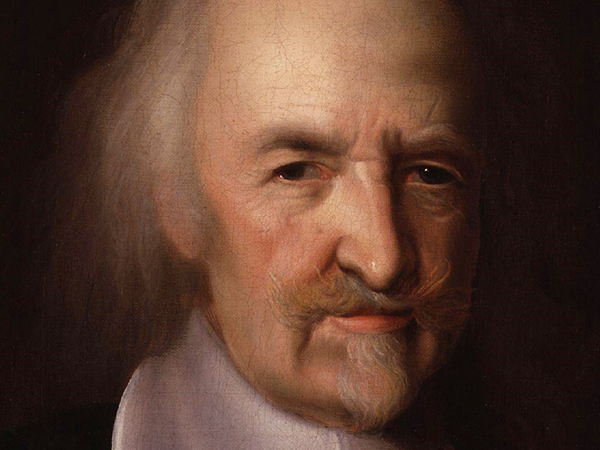
Core assets
History of philosophy: The Center aims to research one of the most innovative moments in Western philosophy, during which new philosophical theory were proposed, i.e. the period approximately spanned from the late 1400s to the end of the 18th century. The Center aims to investigate the relationship between the Renaissance philosophy and the main characters of modern philosophy, and to promote researches on less known but influential philosophers of this period.
History of science, medicine and technology: The Center aims to investigate the structure and history of the immensely rich discipline of natural philosophy in the Renaissance and early modern thought, describe its evolution in time, and capture the consequences of its eventual fragmentation into the modern scientific disciplines.
History of political thought: The Center aims to consider how new scholarship and interdisciplinary approaches have shaped our understanding and assessment of the history of political thought and the broader field of Renaissance and early modern intellectual history.
Classical tradition: The Center examines how cultures Renaissance and early modern thought have received Greek and Roman antiquity. It focuses on the creative use of the ancient Greco-Roman heritage in a broad range of scholarly endeavors. It explores the significance of classical influences on the shaping of modern mind connecting a wide range of interests in classics and ancient history and literary studies.
History of ideas/Intellectual history : The Center aims to foster research and teaching in intellectual history uniting researchers from the fields of art history, literary history, history of technology, history of philosophy, social history, and economic history as well as researchers in science studies in order to examine how knowledge has been displayed and systematized over the course of history and the role played by individual actors and values in this process.
History of academic institutions and universities: The Center focuses on study of every aspect of university, and more in general of academic environment, history development, structure, teaching, and research from the Middle Ages to the modern period.
Host institution
The Center is embedded in the Department of Philosophy and Cultural Heritage .
The University and Venetian libraries and affiliates have superb collections for research in history of Renaissance and Early Modern thought. Holdings include a magnificent collection of incunabula and early printed works; one of Italy’s fullest and most varied collections of seventeenth- and eighteenth-century books and periodicals.
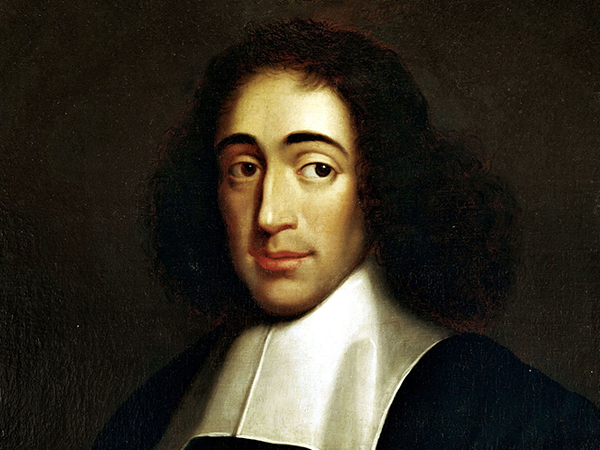
Scientific board
Director
Matteo Favaretti Camposampiero
Matteo works on the origins of the idea that thought depends (in various ways and to various extents) on language, on the intersections between views on human language faculty and the mind-body problem and on the early formulations of semantic compositionality. He studies early modern ontology, in particular mereology. Finally he investigates the early modern conceptions of life and death especially in the Leibnizian, post-Leibnizian, and anti-Leibnizian doctrines of immortality.
Vice-director
Marco Sgarbi
Marco Sgarbi is working on the first comprehensive analysis of works written on Aristotle in Italian between c. 1400 and c. 1650. During this period, around 250 works, including translations, commentaries, compendia, dialogues, poems, and other compositions, attempted to broaden people’s familiarity with the most systematic philosopher of antiquity. Although the movement to translate Aristotle into Italian was hugely significant and foreshadowed many of the features of early modern philosophy, it has barely been studied. His project, which brings together the strengths of research teams in Venice and Warwick, will thus offer the first in-depth exploration of this phenomenon. By taking into consideration the whole range of writings on Aristotle it will provide a more nuanced understanding of how philosophy was understood and practiced outside of the elite, Latin circles of universities and religious orders.
Ca' Foscari members
Craig Martin
Craig Martin is working of two major book projects; the first is a monograph on the theories of wind during the early modern period. Wind powered early modern European exploration and expansion. During that period, knowledge of the wind transformed. As early as the first voyages to the New World, travelers sought to characterize and map recently discovered winds, integrating their observations with knowledge derived from natural philosophy, history, geography, mathematics, cosmography, the art of navigation, and medicine. His project will give an account of one of the earliest emergences of natural knowledge on a global scale.
Pietro Daniel Omodeo
Pietro Daniel works on the competing confessional discourses on cosmology of the seventeenth century, an epoch in which religious conflicts originated opposing ‘epistemic cultures’, which were embodied in scholarly institutions and networks such as the Protestant web of northern European universities or the global web of Jesuit colleges. His addresses the interrelations between 1) cosmological debates in the northern European Protestant institutional networks of scholars and institutions and 2) cosmological debates in Jesuit institutional networks aiming at 3) a comparative assessment of early formations and transformations of epistemic webs. He considers parallelisms and contrasts, negotiations and intersections of seventeenth-century cosmological discourses between scholars, institutions and scientific communities belonging to different epistemic cultures.
Mariangela Priarolo
Mariangela Priarolo’s work focuses on the role that metaphysics has in relation to other domains of knowledge, such as theology, epistemology, natural sciences, and politics in early modern philosophy, especially in Nicolas Malebranche and Gottfried Wilhelm Leibniz. Her recent and current research concerns Malebranche’s definition of reason and its connections with the affective dimension of human nature in understanding the moral life, the ‘biological’ theories of preformation in Malebranche and Pierre-Sylvain Régis and the place they have within mechanical conceptions of life, the extent and limits of Leibniz’s conception of toleration, and the debate on superstition and science which took place in France at the end of the seventeenth-century. She is also interested in the representation of the main features of modernity in post-human studies.
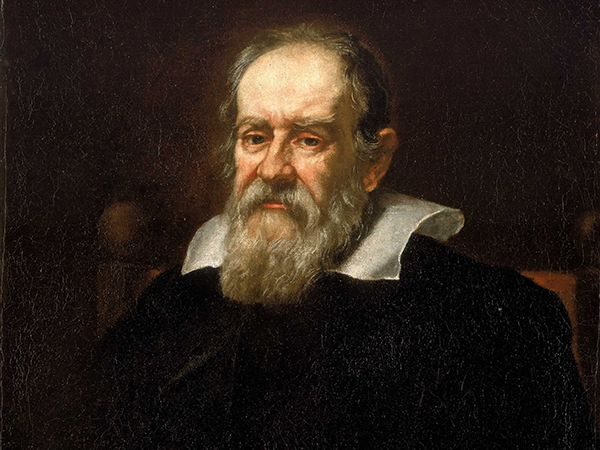
External committee
Research
Philosophical Reviews in German Territories (1668-1799)
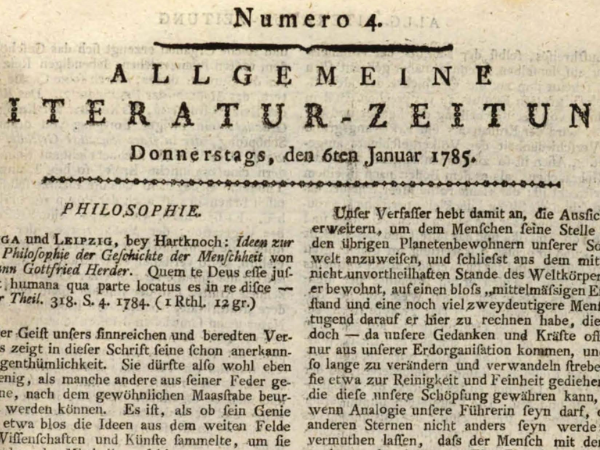
The main purpose of the project is to offer the first complete and systematic study of the rise of the philosophical review, adopting the methodology of the new discipline of the history of knowledge. The project covers the period from 1668 to 1799, that is two unsuccessful attempts to establish two journals of reviews by Leibniz and Fichte. It looks at philosophical reviews not only as mere intellectual modes of communication or cultural media, but as an intellectual work with their own philosophical dignity. Therefore, the project aims to show (1) the philosophical relevance of reviews; (2) their role in shaping the republic of letters; (3) their contribution to the construction of a philosophical terminology.
Philosophical Reviews in Early Modern Europe (1665-1789)
The project PREME aims to explore and catalogue from the perspective of the history of knowledge all philosophical reviews published in between 1665 and 1789, spanning from the founding moment of the two first philosophical journals – Philosophical Transactions and Journal des Sçavans – to the French Revolution, which is usually considered a turning point marking the end of literary experimentation and, conversely, the beginning of intellectual specialization and mass communication. The database is based on the census of more than 1.500 different journals and more than 10.000 issues. Albeit the high number of studies and research projects on the academic and scientific journals, scarce, if not any, attention has been given to the role of reviews in shaping the Republic of Letters and in determining the cultural milieu and the circulation of knowledge across countries. This database exploits existing digitised resources: for French-language journals, Le gazetier universel covers1600-1789 [FRA]; for Italian, Periodici e riviste preunitarie encompasses 1668-1861 [ITA], going beyond our end-date; for English, the main reference is Eighteenth Century Collections Online; for German, the Gelehrte Journale und Zeitungen als Netzwerke des Wissens im Zeitalter der Aufklärung spans the end of seventeenth century to the beginning of the nineteenth (https://gelehrte-journale.de/startseite [DEU]; http://idrz18.adw-goettingen.gwdg.de [DEU]; http://ds.ub.uni-bielefeld.de/viewer/collections/zeitschriftenderaufklaerung [DEU]).
The database is under completion and the entries are constantly under revision.
